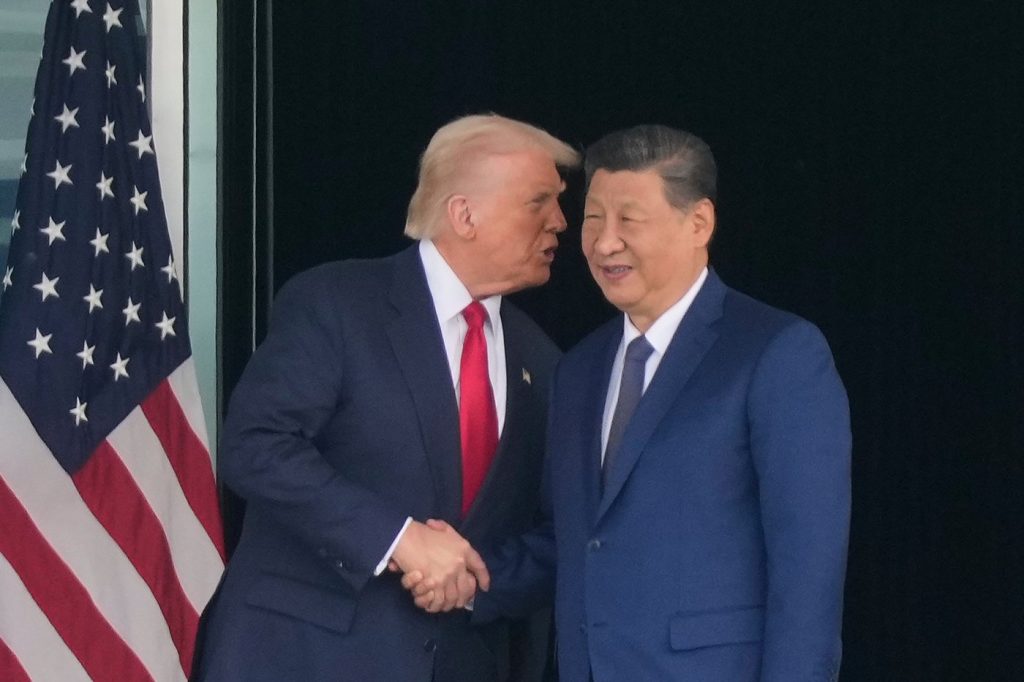In a recent communication on Truth Social, President Donald Trump made waves in the diplomatic arena with his post declaring, "The G2 WILL BE CONVENING SHORTLY!" This remark came just ahead of his highly anticipated summit with Chinese leader Xi Jinping on October 30, 2025, in South Korea. The use of the term "G2," which signifies the Group of Two, has drawn attention as it was a concept Washington had sidelined for at least the past decade, including during Trump’s initial presidency.
The G2 idea was introduced by American economist C. Fred Bergsten in 2005, emphasizing the importance of dialogue between the two largest economies. It has since come to suggest a balance of power, ideally from Beijing's perspective, as it has transitioned from a regional power to a key global player. However, this suggested equilibrium raises concerns among U.S. allies who fear China's growing influence in global affairs and how the U.S. may engage with Beijing as equals.
According to Neil Thomas, a fellow on Chinese politics at the Asia Society Policy Institute, the G2 concept implies a level of parity between the United States and China on the international stage. This inference could create anxiety among alliances that have relied on U.S. leadership and may lead to concerns about an unequal balance of power.
Trump’s recent invocation of the G2 concept aligns with a broader trend wherein China seeks to shape a new global order. For much of the 20th century, China's leaders criticized Western nations for attempts to 'contain' its rise. Post-World War II, many viewed the containment policy as a means to marginalize China, a notion that has continued to inform its diplomatic strategies, including the contemporary Belt and Road Initiative aimed at broadening Chinese influence.
After Trump described his upcoming meeting with Xi as one that would lead to "everlasting peace and success," Defense Secretary Pete Hegseth echoed the G2 terminology in his own post following discussions with Chinese Defense Minister Dong Jun. This has led to apprehension from former officials such as Mira Rapp-Hooper, who noted that this kind of engagement may provoke unease among U.S. allies who fear trade-offs that could undermine their interests in favor of a U.S.-China deal.
As the G2 nomenclature resurfaces, economist C. Fred Bergsten clarified that he envisioned this as a means for the two superpowers to engage on essential global economic issues, without sidelining existing multilateral organizations such as the G7 or G20. He prompted understanding that the G2 does not entail U.S. or Chinese hegemony over other nations, but rather constructive cooperation for mutual benefit.
Chinese commentators responded positively to Trump's remarks, interpreting the revival of the G2 as Beijing's acknowledgment that the global landscape has shifted towards a bipolar world, thereby diminishing the significance of other regions, including Europe, Japan, and India. During a Chinese Foreign Ministry briefing, a question about the formation of a G2 implied that it might reshape the global order. Ministry spokesperson Guo Jiakun asserted that China is prepared to undertake significant responsibilities as a major country, promoting the idea of a multipolar world while maintaining a commitment to multilateralism.
Nevertheless, the G2 concept has historically faced skepticism in Washington. After the financial crisis, the U.S.-China relationship diverged, leading to a decline in the use of the term. Rapp-Hooper observed that it had initially gained traction during the Obama administration. However, many U.S. allies viewed the concept unfavorably, as it could suggest that major global decisions would be made without adequate representation from allied interests, leading to feelings of insecurity in regions like Asia.
Kurt Campbell, a former deputy secretary of state during the Biden administration, expressed that apprehensions in Asia were heightened by the actual implications of the G2 framework and its potential to destabilize regional confidence in U.S.-China interactions. He emphasized that the term has been significantly delegitimized in international dialogues.












